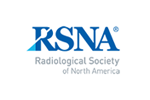Routine Chest Imaging
Routine testing may be important to identify the presence of undiagnosed diseases. Chest imaging may be a part of these routine tests, to examine the heart and the lungs. Chest x-rays are often performed before surgery and other procedures, for example, to evaluate undiagnosed individuals who may be at higher risk for complications. Routine chest x-rays have not been shown to be useful as a screening test for healthy individuals or for persons without symptoms of disease or illness.
Routine chest imaging is not recommended for people admitted to the hospital with no clinical concern for heart or lung disease.
Routine preoperative chest imaging is not recommended for individuals having non–heart or lung surgery if they do not have chronic heart or lung disease and have not had heart or lung surgery in the past.
A chest x-ray may be appropriate in people with a history of chronic heart or lung disease or who have a history of heart or lung surgery.
A chest x-ray or CT chest without intravenous contrast may be appropriate for surveillance in people with a history of chronic heart or lung disease with stable clinical findings.
This page was reviewed on April 23, 2024



